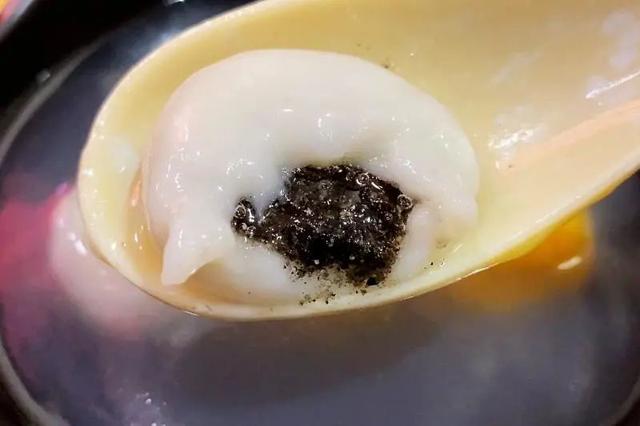The General Administration of Customs resolutely cut off the smuggling channels of wild animals.
Legal Daily All-Media Reporter Cai Yanhong
There have been tens of thousands of confirmed cases and over a thousand deaths in COVID-19. Behind the cold data are the tragedies of tens of thousands of families.
This tragedy has brought illegal smuggling and consumption of wild animals to the forefront. Weibo, the official of South China Agricultural University, recently announced that pangolin is a potential intermediate host of novel coronavirus, and China CDC has detected a large number of novel coronavirus in Wuhan South China seafood market. The survey shows that there was illegal sale of wild animals in the seafood market before, and driven by demand and interests, illegal trafficking and smuggling of wild animals and other illegal and criminal acts have been repeatedly fought.
Statistics from the General Administration of Customs show that in 2019 alone, the national customs investigated 467 cases of smuggling of endangered animals and plants and their products, and seized 1,237.6 tons of endangered species and their products, including ivory and pangolin, up 2.2 times and 8.6 times respectively over the previous year. The crime of smuggling endangered species and their products is becoming more and more concealed, especially the smugglers are constantly changing their modus operandi. Smuggling in off-site areas and smuggling in hidden places are the outstanding characteristics of such cases.
The lure of wild animals
Wild animals, some people call them delicious, are also sought after for their so-called "medicinal" value. Driven by high market profits, criminals do not hesitate to take risks, poach, kill and smuggle.
In 2019, the national customs seized many cases of illegal smuggling of live pangolin, frozen pangolin and pangolin scales: On March 24, Jiangmen Customs Anti-smuggling Bureau seized 11 live pangolins and 2 frozen pangolins on the spot during the network-closing operation codenamed "0313" smuggling pangolins. After investigation, from 2018 to the incident, smuggling gangs smuggled more than 300 live pangolins; On October 29th, Wenzhou Customs Anti-smuggling Branch of Hangzhou Customs Anti-smuggling Bureau seized 10.65 tons of pangolin scales in ouhai district, Wenzhou City, Zhejiang Province. After investigation, it was verified that the smuggling gang involved had smuggled 12.56 tons of pangolin scales twice since November 2018. In this case, 18 suspects were arrested and pangolin scales totaling 23.21 tons were found. It is understood that a pangolin has about 0.406 kilograms of scales and smuggled 23.21 tons of scales, which means that nearly 50,000 pangolins have been poisoned.
Lizards, pythons, turtles, spiders, ants … … In recent years, a trend of raising "exotic pets" has arisen, and many "crawling friends" are proud of raising endangered wild reptiles. Smugglers also saw "business opportunities" from it.
In January 2019, Wuxi Customs Anti-smuggling Branch and Wuxi Public Security Bureau jointly investigated the case of smuggling precious animals, and found out that the suspects Hu and Lu colluded with overseas suppliers to smuggle and import precious animals such as tortoises and American green iguanas listed in the appendix of the Convention on International Trade in Endangered Species of Wild Fauna and Flora by means of means of transportation, and sold them for profit, involving 56,306 precious animals, including 536 tortoises and green iguanas. This smuggling gang buys a large number of endangered live animals from overseas suppliers, transports them to transit places, and uses cars or ships to smuggle them into China and sell them at home.
Xiamen Customs seized a smuggling case of giant lizard last year. Since July 2019, overseas criminal suspect Ni Molun has made friends with mainland pet players through WeChat pet group for profit. Knowing that green iguanas and plains monitor lizards are endangered wild animals, he still bought them from overseas sellers, and smuggled more than 300 live monitor lizards into China in 12 batches, which were "broken into parts" by postal channels and delivered to Anhui, Jiangsu, Shanxi and other regions in batches, and sold them through WeChat or pet market.
On February 28, 2019, the customs officers of Guangzhou Baiyun Airport, which belongs to Guangzhou Customs, found two live snails in the luggage of an African international student. The parties indicated that they were going to declare and bring two snails into the country as pets. After identification, these two living snails are African giant snails, which are quarantine pests. On July 9, the customs officers of Jinling Customs Office in the post office under Nanjing Customs found suspicious images of two postal parcels from the Philippines and Germany when inspecting them. After unpacking, 38 postal parcels were found to be 13-mdash; 17 cm live centipede. The recipient is an insect lover.
In 2019, Chengdu Customs seized four cases of smuggling wild animals, involving Sukada tortoises, South African flat stone scorpions, Nanyang big pocket worms and other species, with a total number of 421.
Wild animals or diseases
"Wild animals may carry pathogenic bacteria, viruses and parasites, causing animal diseases. If the disease is zoonotic, it will bring serious harm to personal health. " Yan Yubao, a quarantine expert at Chengdu Customs, told the reporter.
According to Xiamen customs quarantine experts, contact with wild animals may threaten human health. Historically, many diseases that pose a great threat to human life originally originated from animals. For example, the infection rate of Ixodes on the body surface of the monitor lizard is 88.9%, and the infection rate of parasites in the body is 100%, which can spread forest encephalitis, Xinjiang hemorrhagic fever, West Nile fever, Lyme disease, endemic relapsing fever, salmonella disease and other diseases. If it is kept as a pet, infected animals can cause human diseases directly or indirectly.
Wang Chunxia, an expert from the Animal and Plant Quarantine Department of Guangzhou Customs, told the reporter that most of the smuggled wild animals have not been approved for entry quarantine, nor have they been officially quarantined by the exporting countries or regions. Once diseases or pests are introduced and colonized and spread in China, they will bring great security risks to ecology and agriculture. In particular, living animals are far away from the original growth environment, locked in cages, and packed in dark and dirty containers. After months of long-distance transportation by sea, they are easy to breed diseases under stress, and it is easy to bring hidden dangers of disease transmission after smuggling into the country, posing a direct threat to national public health and safety.
"Smuggling endangered wild animals can easily lead to the disintegration of biogeographic isolation, and it may gradually become aggressive because there are no creatures that compete or restrict it in the new environment. Once it is colonized in China, it will expand greatly, breaking the local ecological balance and seriously destroying biodiversity." Wang Chunxia said.
In addition, it will also cause the exhaustion of biological resources. According to the Red List of Endangered Species updated by IUCN IUCN)2018, there are 26,840 endangered species. The wild population of Chinese pangolin tended to be exhausted as early as the 1980s. In order to protect pangolins, in September 2016, CITES upgraded all eight species of pangolins in the world to Appendix I, and banned pangolins trade on a global scale.
"In fact, pangolin scales are made of keratin, which is no different from human hair and nails. Pangolin meat carries a lot of parasites and viruses." Cai Jixiong, deputy director of Jiangmen Customs Regulations Department, said.
Cut off smuggling channels
All along, the national customs has always cracked down on the smuggling of endangered species and their products with a "zero tolerance" attitude, which has curbed the smuggling of endangered species and their products to some extent. However, smugglers are constantly changing their modus operandi in an attempt to evade customs supervision.
"Most of these cases are smuggled and hidden in non-customs places, which is more harmful. Most pangolin cases seized by the customs are smuggled in this way." Li Ming, director of the Anti-smuggling Bureau of Jiangmen Customs, said when talking about the characteristics of smuggling cases of endangered species and their products.
In addition, the smuggling of endangered species and their products through the express mail channel can not be ignored, and the smuggling crime is becoming more and more hidden, and the means are constantly changing. In particular, the Internet has improved the convenience of smuggling crimes, making it more difficult to smuggle. Criminals often use the Internet to conduct transactions and then enter and leave the country through the express mail channel.
Recently, in order to resolutely ban and severely crack down on illegal wildlife trading during the COVID-19 epidemic, the General Administration of Market Supervision, the Ministry of Public Security, the Ministry of Agriculture and Rural Affairs, the General Administration of Customs and the National Forestry and Grassland Administration jointly issued a notice to jointly carry out special law enforcement actions against illegal wildlife trading.
At present, in combating the smuggling of endangered species and their products, the customs has implemented comprehensive, multi-channel and three-dimensional regulatory crackdown and comprehensive management. Strengthen positive supervision, intensify the crackdown on acts such as hiding, false reporting and concealment, and implement 100% machine inspection on goods from key countries and regions, inbound and outbound luggage and postal express mail from key countries and routes; All luggage, mail and express mail containing suspected endangered species and their products shall be unpacked and thoroughly investigated; 100% machine inspection of luggage and articles of transport service personnel, strict safety control, and cut off smuggling channels.
In view of the behavior of passengers carrying or mailing endangered species and their products from abroad, the customs takes measures to punish them within the scope stipulated by laws and regulations, and puts forward the principle of "five unifications". That is, whoever transports, carries or mails endangered species products into or out of the country in violation of laws, regulations and relevant regulations shall be investigated for criminal or administrative responsibility according to law; Anyone who evades customs supervision, transports, carries or mails endangered species and their products into or out of the country shall be treated as smuggling; Those who constitute a crime shall be transferred to judicial organs for criminal responsibility; Smuggling endangered species and their products that are not investigated for criminal responsibility according to law shall be fined in addition to the confiscation of products; Those who have been punished by administrative punishment for similar acts again will be punished within the scope of punishment.




















